Positive and negative cultural practices in Ghana
I say this without an iota of doubt that African countries are far behind their counterparts in the West in all dimensions of life and more so in matters of development. It’s not because the latter has great intellectual capabilities than we are but the environment, education and socialization makes all this difference. Evidently, this can be seen in the diversion between cultural practices in Ghana and those of the west.

Cultural practices in Ghana for instance have both the good and the ugly bit of it. The good cultural practices in Ghana allow for historical heritage passage, continuity and preservation. This brings a sense of belonging and identity African people boast about. On the other hand are some bad cultural practices that are barbaric, demeaning, in humane, senseless and traumatizing to say the least. Ghana is home to many people of diverse backgrounds with different communally accepted beliefs, norms, customs, morals, art, setup and law different from one community to the next and from people to other people.
In this piece, I will outline some of the socio cultural practices in Ghana. Those that were traditionally practiced and are still or not practiced today. I will broadly categories them into positive and negative cultural practices in Ghana and mention the repercussions of each. This will help tell apart the ethical from unethical, hence know which requires maintenance and preservation and which ones should be condemned. Here is the list of cultural practices in Ghana;
List of cultural practices in Ghana
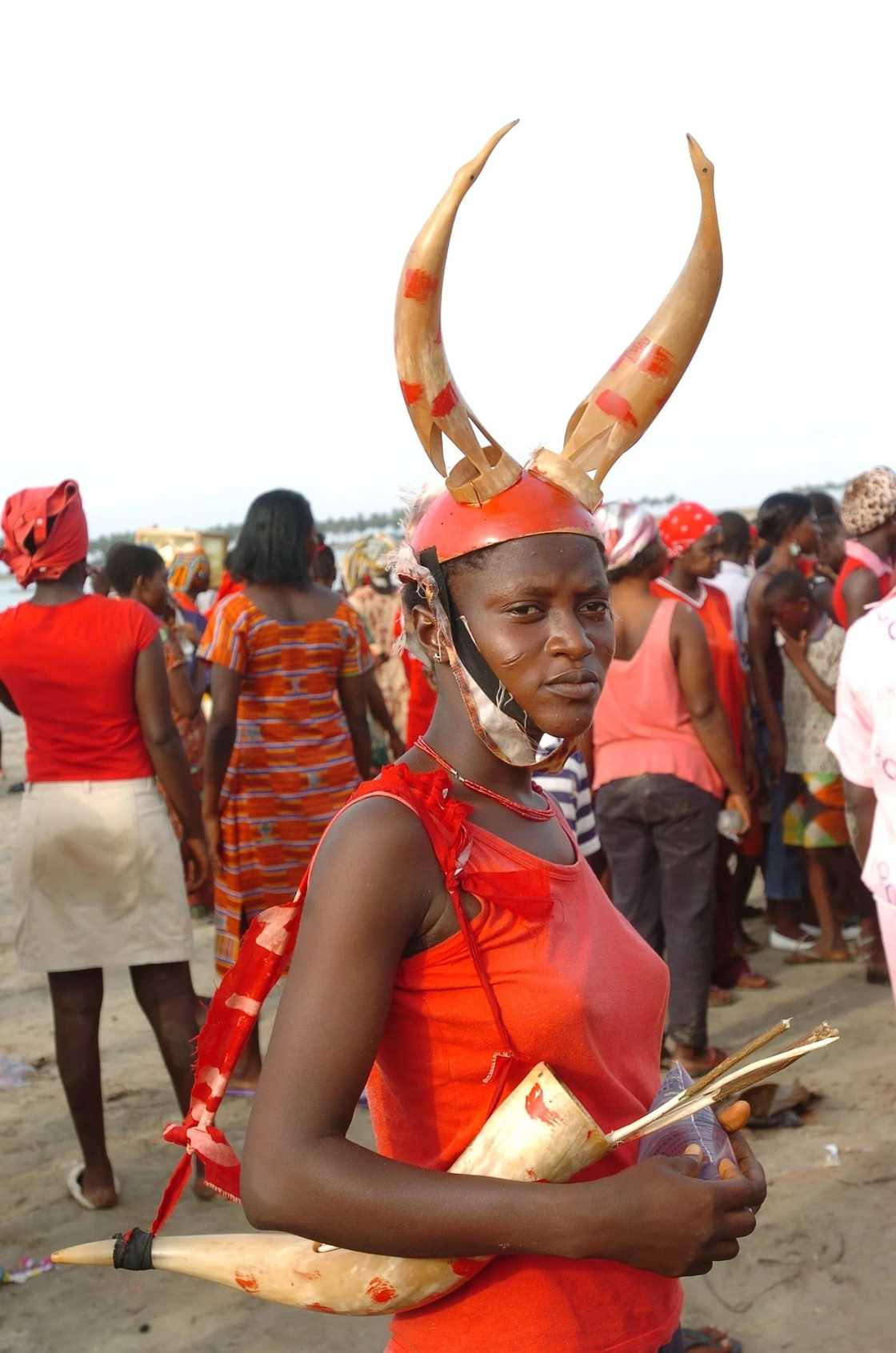
Human being by decent is a social being, no wonder the Englishmen came up with the mantra, no man is an islander. Meaning human beings are interdependent on each other, there interaction is what brings about a society then rules that govern it, its leadership, shared beliefs among other things. Allow me to take you back to school and define culture; culture is a learned human behavior applicable to member of that particular society and can be passed down to others, shared and is dynamic in approach.
Culture is a good thing since it is the focal point to which the meaning of life is tied to. Other reasons why culture is important is because it encourages evolutionary enlightment, safeguarding future generation, instill moral values; it’s a school of life, leads to self realization and bring responsibility and discipline. Ideally, culture is a good thing but some corrupt and primitive minds have incorporated practices that are outright not acceptable in this modern day and age.
READ ALSO: Don’t give me a state burial when I die – Efia Odo tells government
Positive cultural practices in Ghana
Culture has been stereotypically associated with old, outdated, irrational and illiterate practices. Yes, there is some truth in this but in everything is a silver lining. Here are the good socio cultural practices in Ghana;
1. Birth rites – example of cultural practices in Ghana
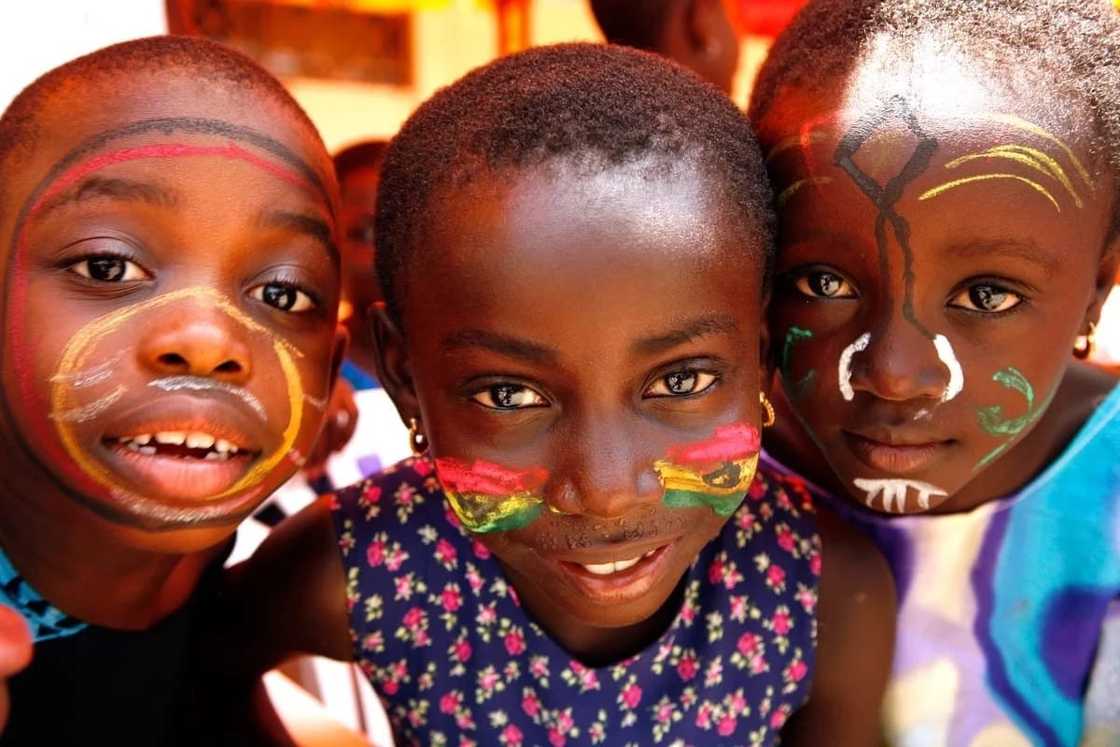
They were conducted and still are conducted after the baby is born as a sign of welcoming them into the larger family. Ordinarily this took place on the 3rd or 4th day following birth. Members of the family would gather up together make merry, feast, sing and dance as they welcome the new addition. Some rites and declaration would be made by the elders including naming. Among the Akan people this ceremony was referred to as Din to but according to their practices it would be 8 days after the baby is born, the baby was to remain indoors before this event was conducted.
Conceptually this would give the baby its identity and position in the community it was born in. this would mean they are accepted and share in the beliefs and practices of that community. This is a positive cultural practice in Ghana.
2. Circumcision rites for boys – example of socio cultural practices in Ghana
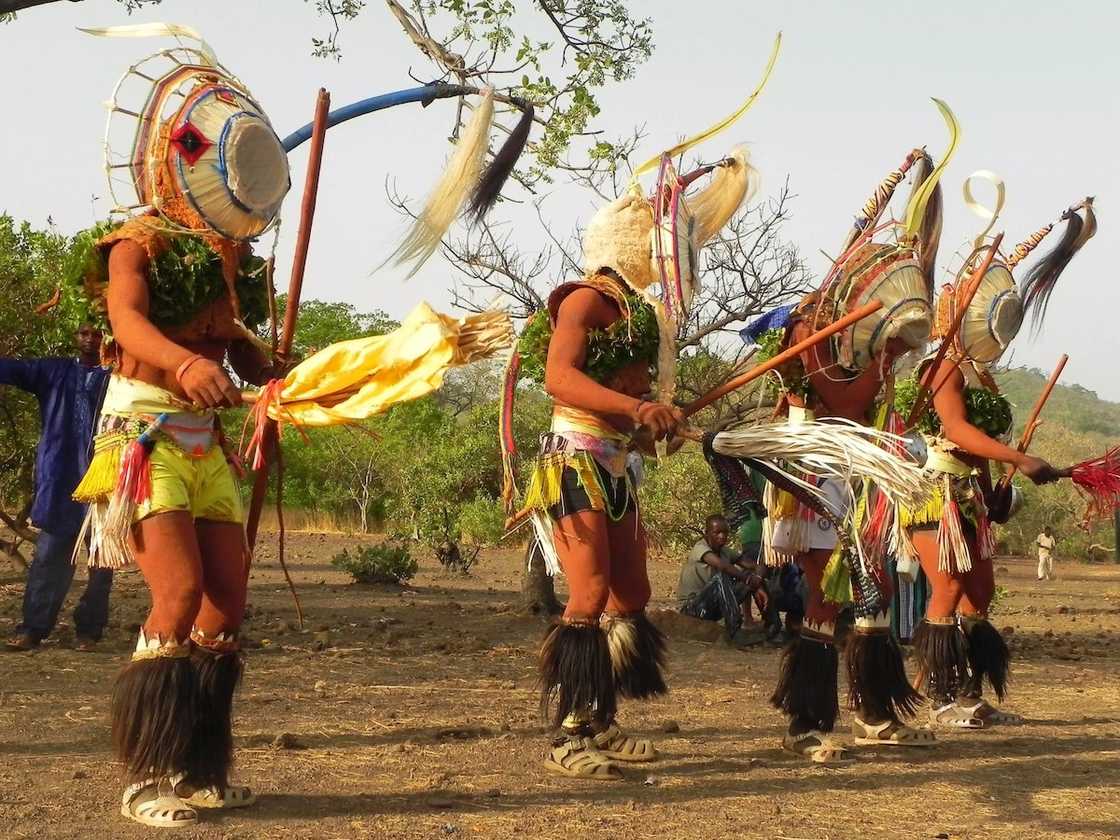
Male circumcision is a written history. From the days of Abraham who was first commanded of God to circumcise every male in his flock this practice has been done from one generation to the next. This was the entry point to adulthood among the people of the masculine gender.
Circumcision entailed the painful excision of the fore skin as a mark of initiation. Traditional, boys who were going through this rite were segregated from the community and taken a distance far of where the procedure would be done as well us being taught their roles as men, how to protect their kinsmen among other generational norms fit for their knowledge.
Today, this cultural practice in Ghana is still being practiced although westernization has brought some slight shift in its application for instance there is the use of sedatives or drugs to cause numbness in bid to ease pain when the procedure is being conducted. Segregation is not done as was in the past but somewhat still is. How so, the bottom line is that circumcision rite for boy is a positive cultural practice in Ghana and still being practiced.
3. Puberty rites
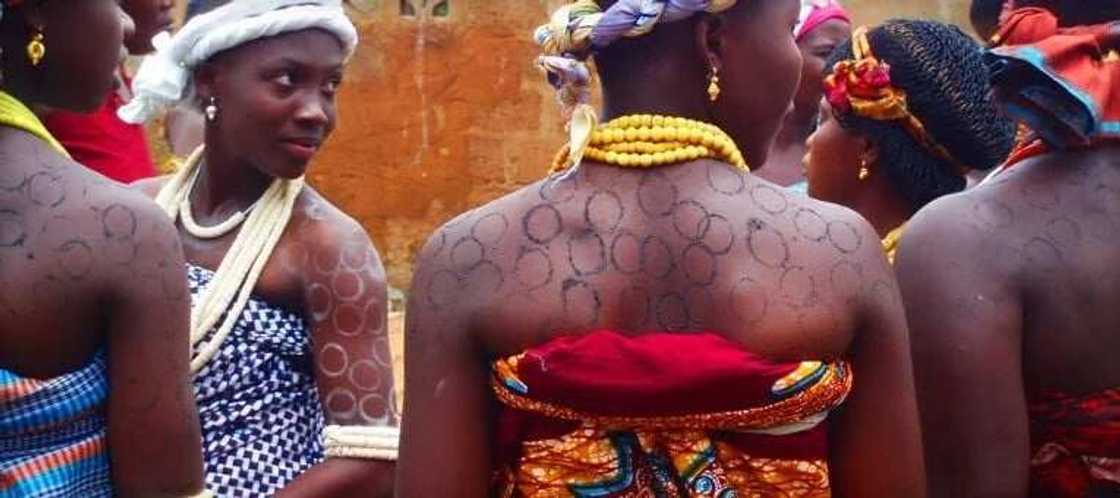
This was done mostly by the Akan, Bragro, Krobos, Gas and the Dipo people. It was performed on girls after their first menstruation as an initiation into womanhood. They would be secluded from the community taught about family, marriage and culture. This would help them maintain their dignity symbolized by virginity until marriage which was the primary qualification for one to go through the rite.
If a girl was deflowered meaning had lost their virginity, the family was on shame. Ordinarily such a girl would be cast out along the other who got pregnant before marriage. Alternatively, cleansing rites had to be performed. This helped girl not to indulge in pre-marital sex and unwanted pregnancies at teenage. These positive cultural practices in Ghana are still being performed up to date.
4. Marriage rites
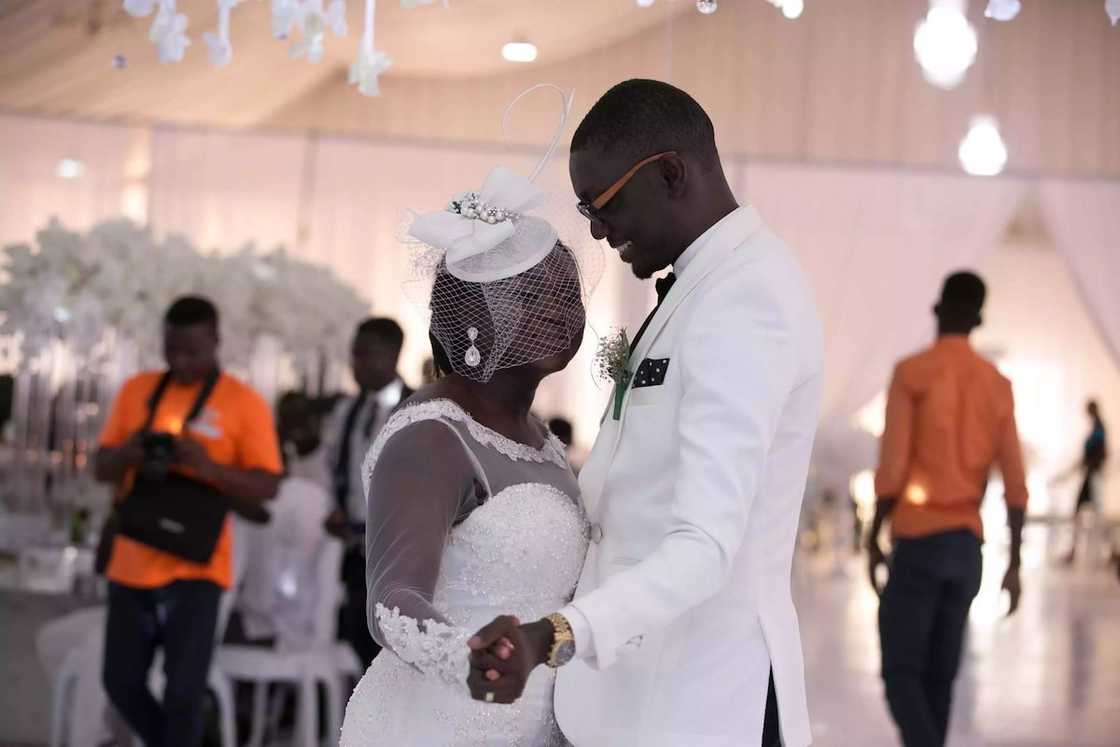
Here above I made a remark that human beings are social beings, allow me to repeat the cliché. You and I would agree that as people advance in age, they tend to develop an inherent attraction towards people of the opposite sex. The culmination of this is what is called marriage; the coming together of people of the opposite sex who have a desire to live together.
READ ALSO: Ghanaian wedding decorations ideas
As was with other cultural practice in Ghana so is in the world. Families would meets up, negotiate, agree on the bride price then be given a girl for marriage. Traditionally, the gods would be appeased and the elders would bless the union. This is one of the good cultural practices in Ghana today. Young people are married off having been counseled and blessed for the lifetime commitment. This has over time help upheld the meaning of marriage as sacred, honorable and undefiled.
List of outmoded cultural practices in Ghana
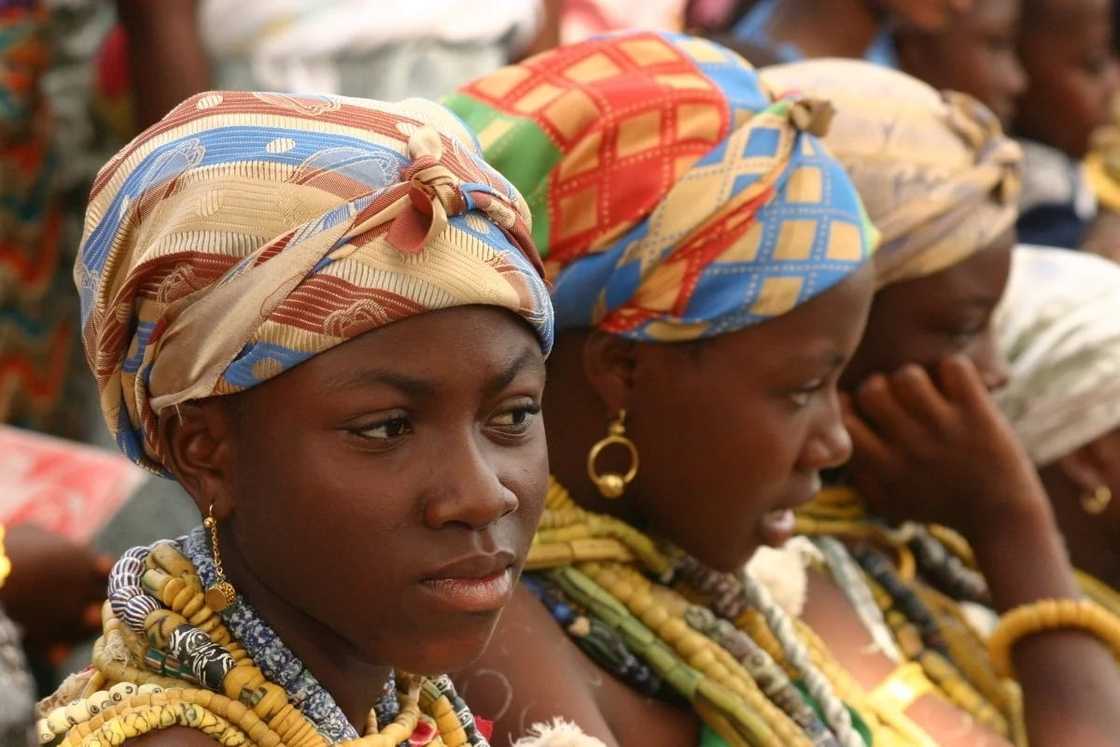
Turning the pages of the cultural practices in Ghana is the ugly side of it. I bet this is because most of these traditions were made by people who were somewhat backward, illiterate and uncivilized to say the least. This make it unfit that some of the norms they put forward are very inhuman, insensitive and long suffering. I believe some were made selfishly with no regard of other people.
Unfortunately women and child are on the receiving end of it. These harsh negative cultural practices in Ghana tend to heavy lie on them. In fact women have no right of expression in the traditional African setup yet are human too. Here are the examples of socio cultural practices in Ghana that demean humanity;
1. Female genittal mutilation – Negative cultural practices in Ghana
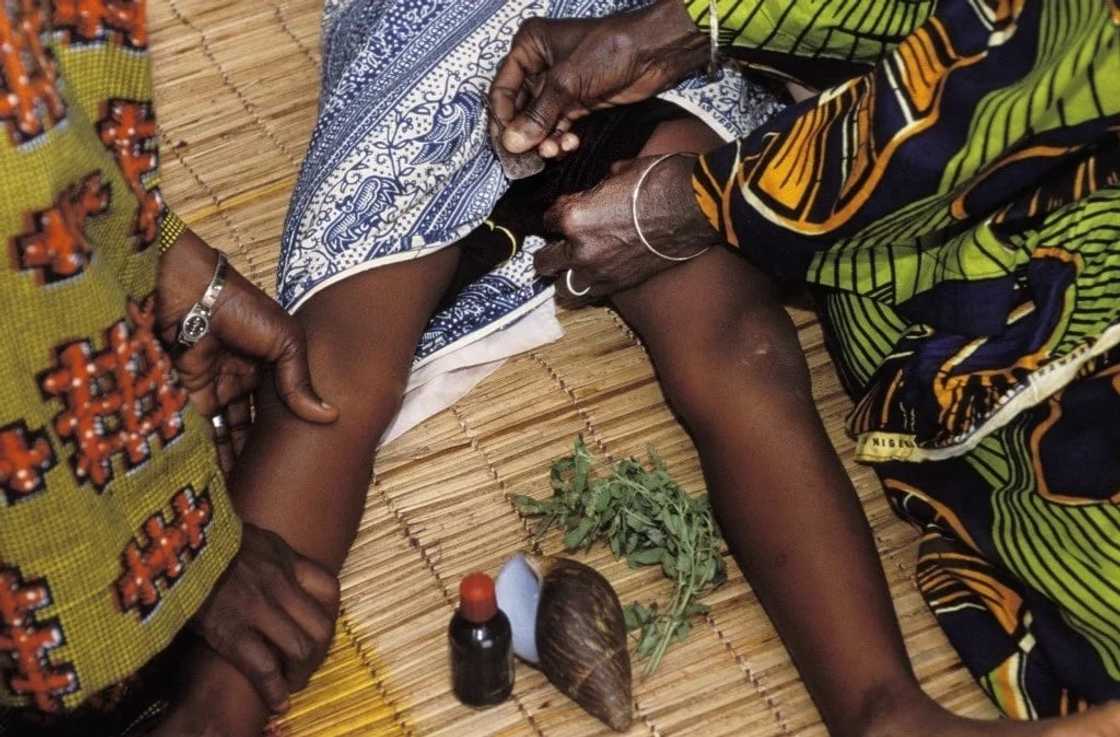
Male circumcision is a common cultural activity in many African countries and even in the West. However, the Ghanaian elders of the ancient times must have copied it the wrong way altogether. Female circumcision is not a transition from childhood to adulthood as in the later but mutilation and the highest disregard to humanity. It entails removal of the genittals not the fore skin as in the latter. These cultural practices in Ghana was so the girl would maintain their sexual purity until marriage as the painful ordeal would hold them back from engaging in any sexual relations before then.
Thanks to education and ongoing research about the female body, female genittal mutilation is gradually on the south trend. The effect of outmoded cultural practices in Ghana sadly would even be death. The consequence of female genittal mutilation is excessive bleeding, blocked or complication during childbirth some which could even get fatal. Besides, this was an infringement of their human rights not forgetting use of unsterilized tool that could spread infections.
2. Child betrothal and marriage
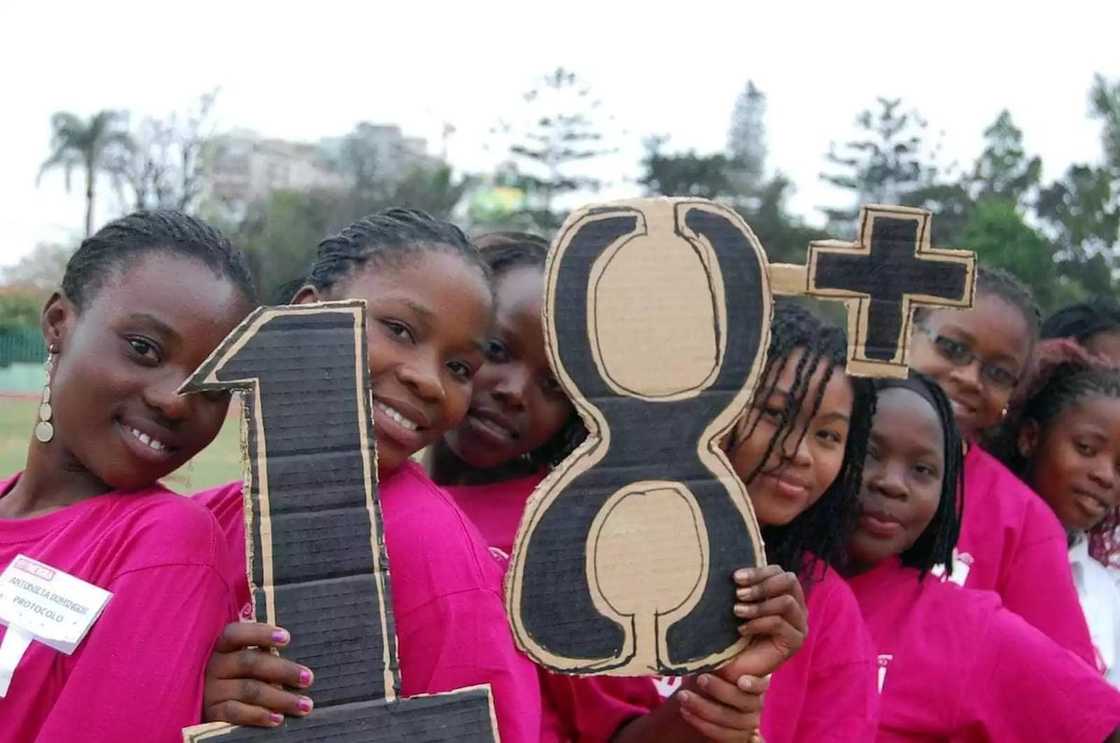
This means that a girl is married off before the age of puberty. Parents would make the negotiations concerning the planned marriage for their daughter without their consent. This was done by some unremorseful parents due to poverty especially in the Northern region where people are living in abject poverty.
Poverty is associated with these negative cultural practices in Ghana. About 70 % of the families in Northern Ghana are poor with 71% of them being illiterate and 79% of the children not attending school. A struggling family then decides to marry off their girl at a tender age to have some means of survival. Commonly, the man marrying the girl is her grandfather’s age and often a rich man.
The effect of this outmoded cultural practice in Ghana is that the girl child was denied their right to education, freedom of choice and often went underpowered. Their lives lie solely at the mercy of their husband. This rendered their lives useless and characterized by pain and hurt.
READ ALSO: Ghanaian Traditional Wedding Dresses: Different Styles, Brands, Lengths, Ages and How to Wear Them
3. Trokosi
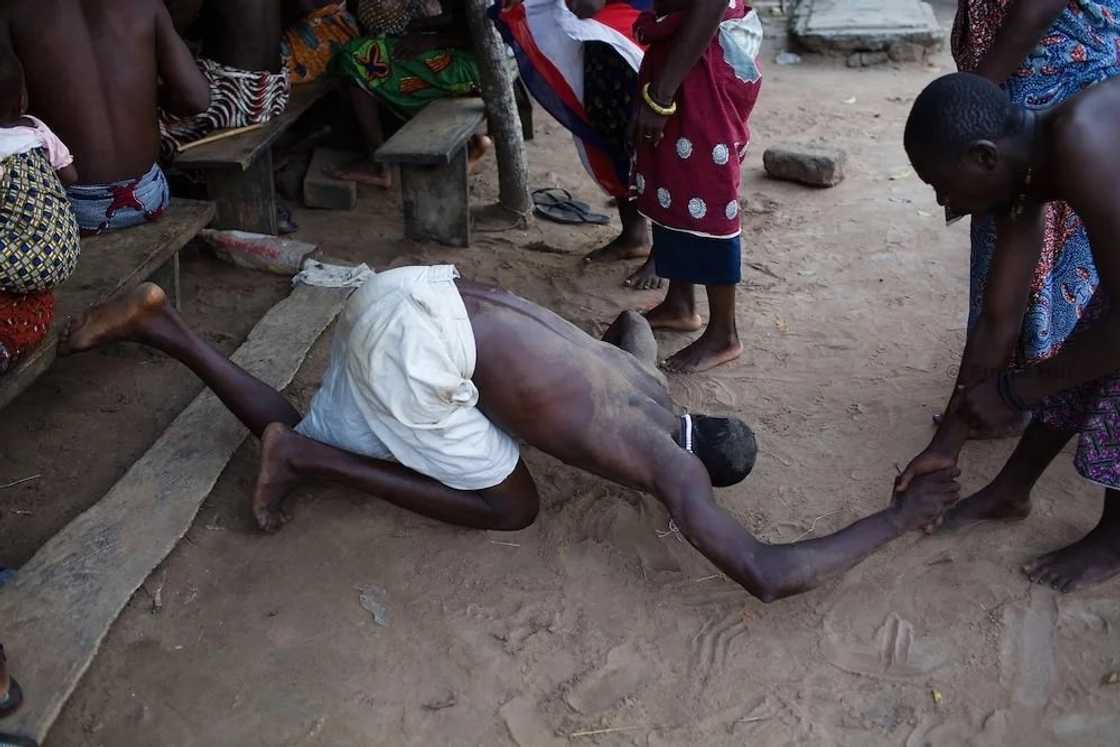
The Ewe tribe conducted this rite to virgin girls around the Volta region of Ghana. A virgin girl would be driven out of their home and taken to the shrines as a ransom for their parents evil or wrongdoings. They would then serve at the shrine denying them an opportunity to lead a normal life including getting married. Sadly, the priest would often take advantage of such girls and have sexual relations with them and made decisions about her life on her behalf. However, these evil cultural practices in Ghana have since reduced considerably.
4. Tribal marks / Scarification
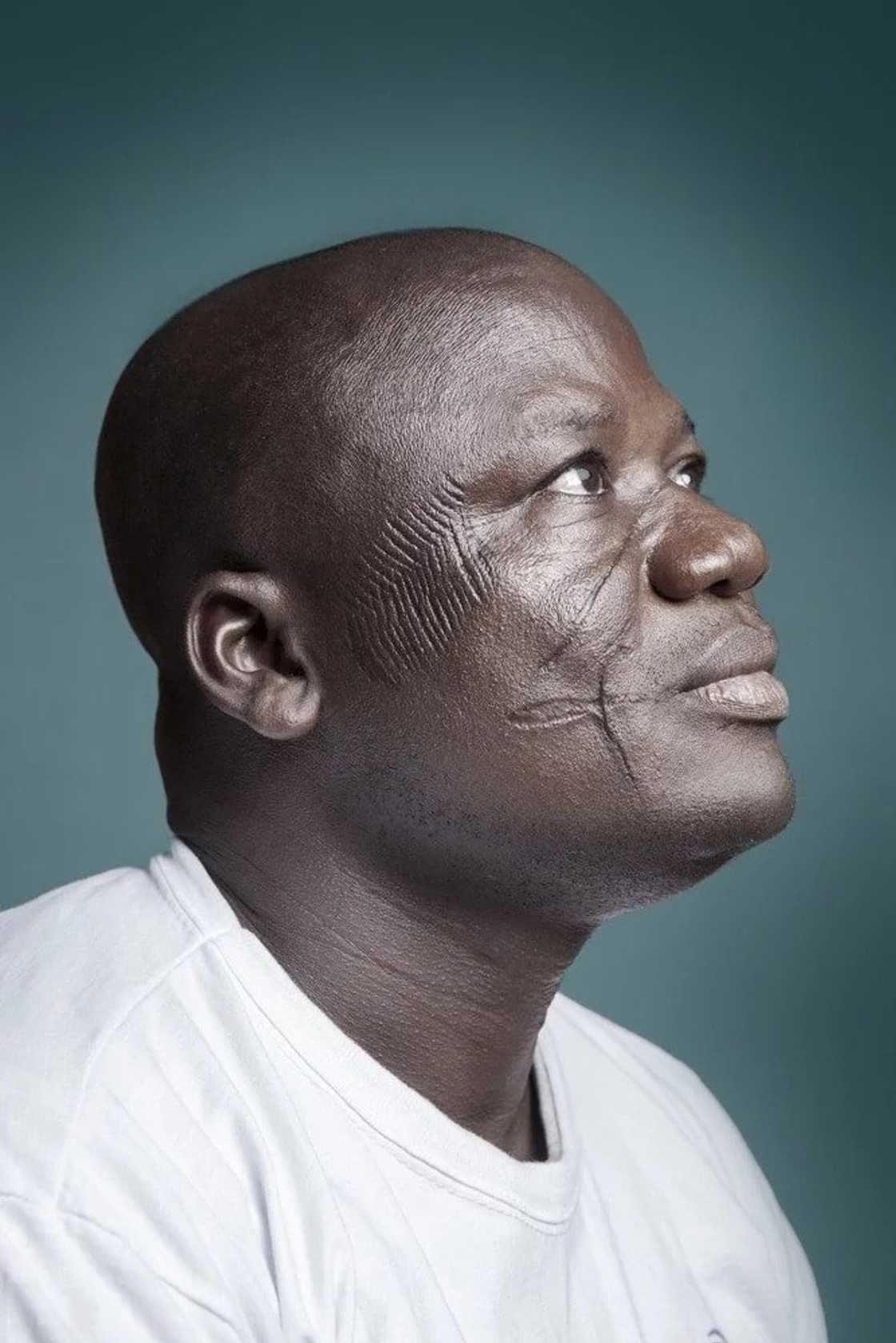
This was a form of beatification done on women. Their bodies would be pierced or cut to make these marks or scars on their body. Worthwhile noting, this procedure was not done by a medical expert, often the instruments used would go unsterilized leading to infection, wounds that are not responding to treatment. In bizarre scenarios, girls would lose their lives to infections or even excessive bleeding.
This cultural practice in Ghana threatens life and is somewhat primitive. However, the government has acted speedy and these have been stooped lest for those who still want to continue with such scarification procedures under wraps.
5. Widowhood rites
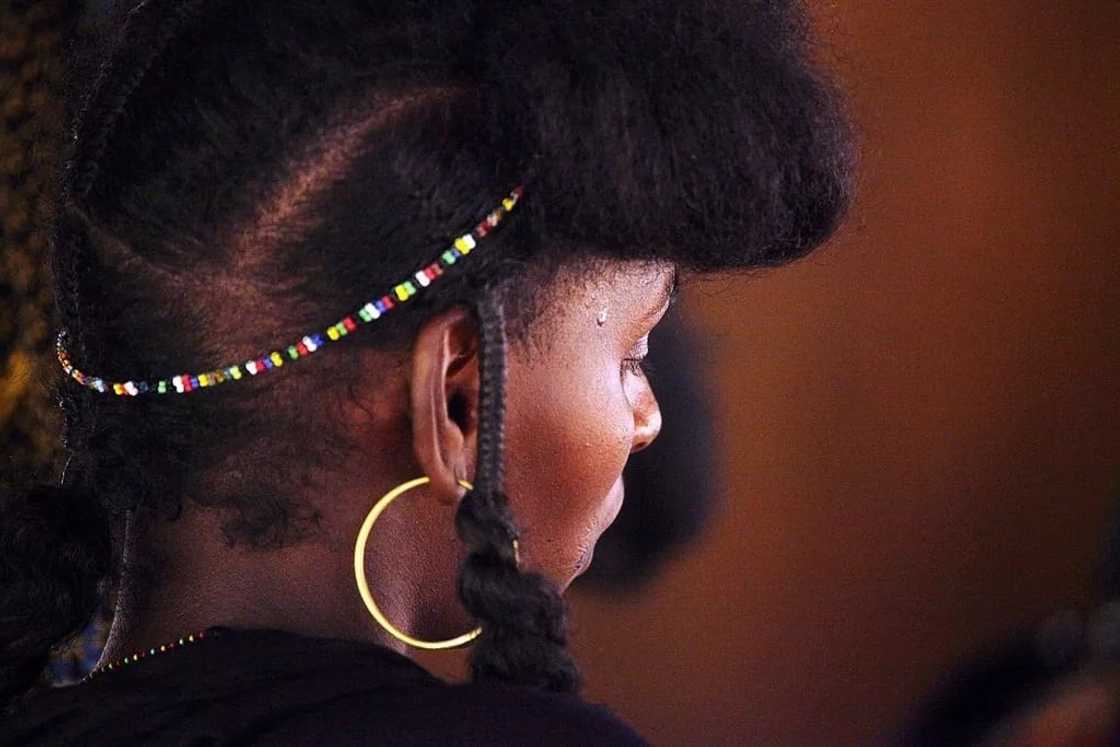
Women whose spouse had passed away had to go through this rite. The rites vary from one community to the next but the common practices include ritual bathing, confinement, hair shaving, wife inheritance just to mention but a few. This would traumatized them to the core of their being considering they were already in their low moment of life trying to deal with death, loneliness, denial anger and acceptance of the departed.
Some would be subjected to unimaginable humiliation causing them social, psychological and emotional torture and trauma. This practice is still being practiced in remote areas though it has subsided from the past. Widowhood rites makes to the list of outmoded cultural practices in Ghana.
6. Killing disabled and deformed children

I belong to the school of thought that believes that illiteracy and ignorance are entwined. Due to lack of knowledge there are communities in West Africa, precisely Ghana that belief children who are born deformed or due to ailments or other caused end up disabled are due to evil powers possession. To spell out the ‘evil spirit’ they have to be cast out lest they bring misfortunes to the community.
Often communities living in the remote areas would kill deformed children. Again this is barbaric and a negative cultural practice in Ghana. However, government has intervened at these practices are no longer done at the public glare if they are actually happening.
READ ALSO: 5 serious social problems in Ghana and their solutions
Source: YEN.com.gh











